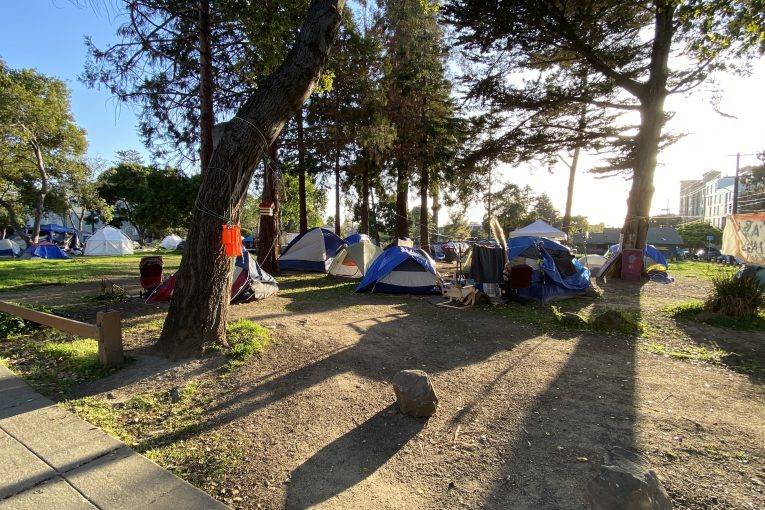
By Savannah Martinez
BERKELEY, CA – In response to an order by California Gov. Gavin Newsom to remove homeless encampments in cities across the state, Berkeley nonprofit “Where Do We Go” (WDWG) said it partnered with the City of Berkeley to clean up “the two largest homeless encampments in the City without removing residents because there is nowhere else for them to go.”
According to WDWG, the non-profit and the “City of Berkeley, provided clean up assistance without arrests, citations, or removal.”
“This is an attempt to decriminalize unhoused populations, said WDWG, reporting the first clean up at the “Eighth and Harrison” site, working with “contractors and the residents to clean up the area.” The cleanup consisted of hauling garbage, disposing of unwanted items in their designated areas, cleaning of the streets, and power washing sidewalks.
WDWG said the second cleanup was expected this past weekend at “2nd Street to Cedar Street and on Page street from Eastshore Highway to the railroad tracks in Berkeley.”
WDWG contractors, volunteers and Board members were set to help residents clean up the space and send unwanted items to designated areas in the city.
On Aug. 6 and 7, “WDWG, the City of Berkeley Public Works and City of Berkeley staff will be out to continue to clean up with residents and haul away items,” according to the statement.
According to WDWG, “unlike San Francisco, where individuals are being arrested, cited and removed, WDWG and Berkeley are creating a realistic and more compassionate model for the state of California and the nation.”
WDWG Executive Director and Attorney, Andrea Henson stated, “arresting and citing individuals for experiencing homelessness, removing encampments without giving human beings a lawful place to sleep is inhumane and unrealistic” and calls for a different approach to stand up against Newsom’s “directive to terrorize the most vulnerable.”
Moreover, civil rights attorney and WDWG Board member Osha Neuman maintained, “Where DO We Go has demonstrated that when cities listen to advocates and to the homeless themselves, everyone benefits; when they don’t they waste resources exacerbate problems, and cause unnecessary suffering.”
WDWG President Ian Cordova Morales added “current tactics cities are using to ‘sweep’ the homeless likely makes the situation worse by breaking trust between the government and these communities.”
Morales noted the government and cities were quick to fixate on how dangerous and problematic these encampments were without considering issues like cleanliness and safety “rather than making homelessness into a crime.”